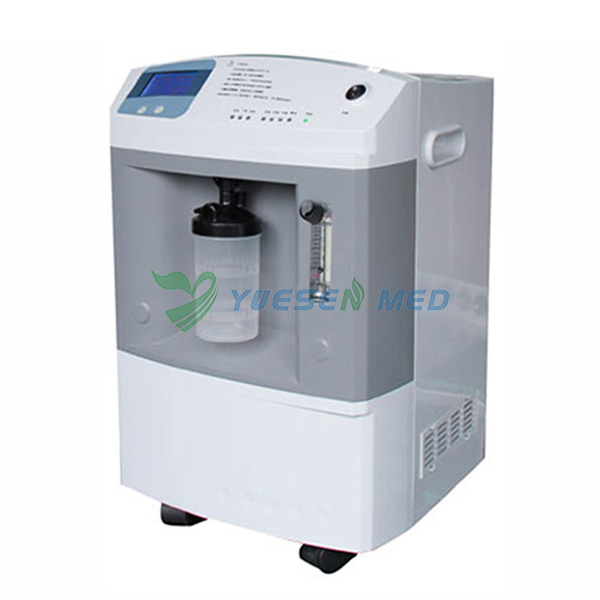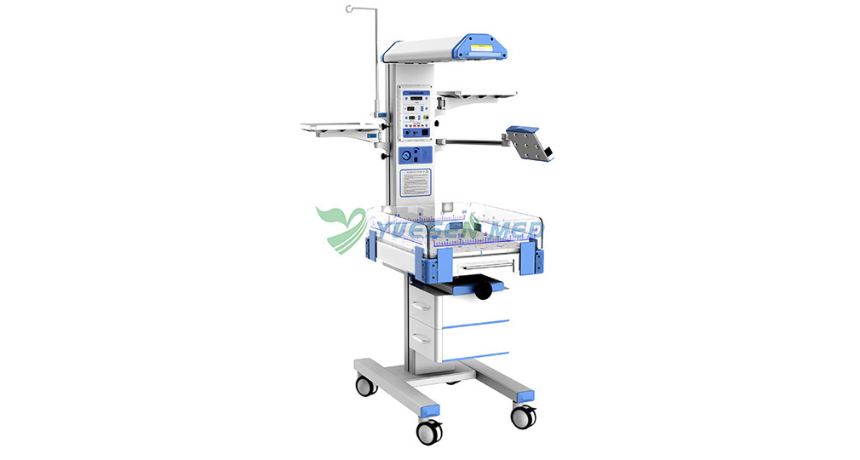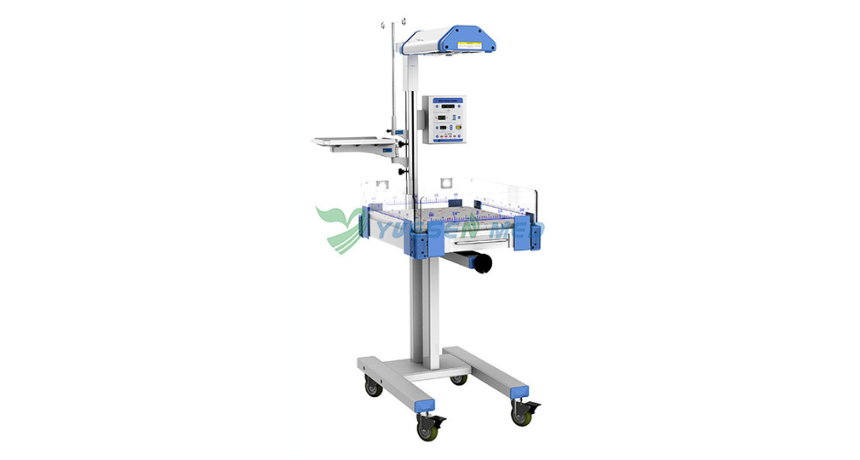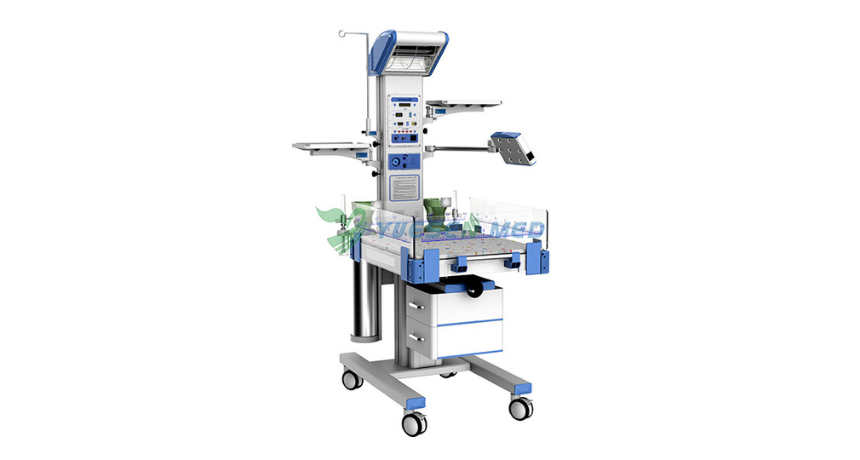Hot Products
YSX500D 50kW DR system set up and put into service in Cambodia.
YSENMED YSX500D 50kW digital x-ray system has been successfully set up and put into service in a hospital in Cambodia.
YSX056-PE serving as a vehicle-mounted x-ray in the Philippines
YSX056-PE 5.6kW portable x-ray unit has been adapted to fit on a truck, to provide mobile x-ray examination service for remote communities in the Philippines.
X Ray Machine To Zimbabwe
x ray machine, 50KW x ray machine
Microscope To Malawi
Achromatic objectives: 4X、10X、40X(S), 100X(S、Oil) Wide field eyepiece: WF10X(WF16X for option) Eyepiece head: Sliding binocular head inclined at 45° Stage: Double layer mechanical stage size 140X140mm, moving range 75X45mm Focusing: Coaxial coarse and
The Ultimate Guide to Choosing the Right Oxygen Concentrator Generator Machine
Views : 1746
Update time : 2024-08-23 11:03:00
When it comes to maintaining optimal health, especially for those with respiratory conditions, having the right oxygen concentrator generator machine can make all the difference. But with so many options out there, how do you choose the best one for your needs? Let's dive into the nitty-gritty of selecting the perfect machine that fits like a glove.

What Is an Oxygen Concentrator?
Before we get into the selection process, let's clarify what an oxygen concentrator is. Essentially, it's a medical device that concentrates oxygen from ambient air, delivering it to the user. It's like having your personal oxygen factory right at home!
Why You Might Need One
If you've been diagnosed with conditions like COPD, asthma, or other respiratory issues, your doctor might recommend an oxygen concentrator. It's crucial for maintaining your oxygen levels, ensuring you can breathe easily and live life to the fullest.
Types of Oxygen Concentrators
1. Portable vs. Stationary
One of the first decisions you'll need to make is whether you want a portable or stationary unit. Portable units are lightweight and easy to carry, making them perfect for active lifestyles. Stationary units, on the other hand, are typically more powerful and designed for home use.
2. Continuous Flow vs. Pulse Dose
Oxygen concentrators come in two main types: continuous flow and pulse dose. Continuous flow units deliver a steady stream of oxygen, while pulse dose machines release oxygen only when you inhale. Think of it like a faucet versus a spray bottle—both get the job done, but in different ways!
Key Features to Consider
When shopping for an oxygen concentrator, keep an eye out for these essential features:
1. Oxygen Output
Different machines deliver varying amounts of oxygen. Make sure to choose one that meets your prescribed needs. Your doctor can help you determine the right flow rate.
2. Noise Level
Nobody wants a loud machine humming away in the background. Look for models known for their quiet operation—after all, peace and quiet can be just as important as the oxygen!
3. Battery Life
If you're going for a portable option, battery life is crucial. You don't want to be stranded without power during an outing. Check how long the battery lasts and whether it's easy to recharge.
4. Size and Weight
Consider how and where you'll use the concentrator. If you plan to travel, a lightweight and compact model will be your best friend.
5. Ease of Use
A user-friendly interface is a must. You want something that's easy to operate, especially in moments of need. Look for clear displays and simple controls.
Additional Considerations
1. Maintenance Requirements
Every machine requires some level of maintenance. Check how often filters need to be changed and how easy it is to clean the unit. A little upkeep can go a long way in ensuring your concentrator runs smoothly.
2. Warranty and Support
Investing in a good warranty can save you a lot of headaches down the road. Look for manufacturers that offer solid customer support and a comprehensive warranty.
3. Price Range
Oxygen concentrators can vary widely in price. Determine your budget and explore options within that range. Remember, while it's tempting to go for the cheapest option, quality and reliability should be your top priorities.
How to Test an Oxygen Concentrator
1. Trial Period
Some suppliers offer a trial period for their machines. Take advantage of this! It's your chance to see how the concentrator fits into your daily life.
2. Consult with Your Healthcare Provider
Always involve your healthcare provider in the decision-making process. They can offer insights based on your specific health needs, ensuring you choose the best option.
User Reviews and Recommendations
Don't underestimate the power of user reviews. Hearing from others who've been in your shoes can provide valuable insights. Look for testimonials about reliability, ease of use, and customer service experiences.
Where to Buy an Oxygen Concentrator
1. Medical Supply Stores
Local medical supply stores often have a variety of options. Plus, you can get hands-on experience with the machines.
2. Online Retailers
If you prefer shopping from home, online retailers offer a wide selection. Just ensure you're purchasing from reputable sites to avoid scams.
3. Direct from Manufacturers
Buying directly from manufacturers can sometimes yield better pricing and warranties. Plus, you can often access more detailed product information.
Common Myths About Oxygen Concentrators
1. Myth: They're Only for Severe Cases
Many people believe that only those with severe respiratory issues need oxygen concentrators. In reality, they can benefit anyone with low oxygen levels, regardless of the severity.
2. Myth: They're Hard to Use
Modern oxygen concentrators are designed with ease of use in mind. Most people find them straightforward and user-friendly.
Conclusion
Choosing the right oxygen concentrator generator machine doesn't have to feel overwhelming. By understanding your needs, considering essential features, and doing a bit of research, you can find the perfect fit. Remember, this isn't just about a machine—it's about enhancing your quality of life. So take your time, consult with professionals, and don't hesitate to ask questions. After all, your health is worth it!
FAQ
What is the difference between a portable and a stationary oxygen concentrator?
Portable oxygen concentrators are designed for mobility, allowing users to take them on the go. They are lightweight and battery-operated, making them ideal for travel. Stationary oxygen concentrators, however, are larger and more powerful, intended for home use. They typically require a power source and provide a continuous flow of oxygen, making them suitable for individuals who need higher oxygen levels throughout the day.
How do I know if I need an oxygen concentrator?
If you experience symptoms like shortness of breath, fatigue, or low oxygen levels as indicated by a pulse oximeter, it's essential to consult with your healthcare provider. They can conduct tests to determine your oxygen saturation levels and recommend whether an oxygen concentrator is necessary based on your specific medical condition.
What is the typical lifespan of an oxygen concentrator?
The lifespan of an oxygen concentrator can vary depending on the model and how well it’s maintained. On average, a well-maintained unit can last anywhere from 5 to 10 years. Regular maintenance, such as changing filters and cleaning the device, can help extend its life.
Is it safe to use an oxygen concentrator at home?
Yes, using an oxygen concentrator at home is generally safe when used according to the manufacturer's instructions and under the guidance of a healthcare provider. It's crucial to ensure proper ventilation and avoid flammable materials, as oxygen supports combustion. Always follow safety guidelines to minimize any risks.
How often should I clean and maintain my oxygen concentrator?
Routine maintenance is key to ensuring your oxygen concentrator operates efficiently. Generally, you should clean the exterior and check the filters weekly. Depending on the model, filters may need to be replaced every few months. Always refer to the user manual for specific maintenance guidelines tailored to your device.

What Is an Oxygen Concentrator?
Before we get into the selection process, let's clarify what an oxygen concentrator is. Essentially, it's a medical device that concentrates oxygen from ambient air, delivering it to the user. It's like having your personal oxygen factory right at home!
Why You Might Need One
If you've been diagnosed with conditions like COPD, asthma, or other respiratory issues, your doctor might recommend an oxygen concentrator. It's crucial for maintaining your oxygen levels, ensuring you can breathe easily and live life to the fullest.
Types of Oxygen Concentrators
1. Portable vs. Stationary
One of the first decisions you'll need to make is whether you want a portable or stationary unit. Portable units are lightweight and easy to carry, making them perfect for active lifestyles. Stationary units, on the other hand, are typically more powerful and designed for home use.
2. Continuous Flow vs. Pulse Dose
Oxygen concentrators come in two main types: continuous flow and pulse dose. Continuous flow units deliver a steady stream of oxygen, while pulse dose machines release oxygen only when you inhale. Think of it like a faucet versus a spray bottle—both get the job done, but in different ways!
Key Features to Consider
When shopping for an oxygen concentrator, keep an eye out for these essential features:
1. Oxygen Output
Different machines deliver varying amounts of oxygen. Make sure to choose one that meets your prescribed needs. Your doctor can help you determine the right flow rate.
2. Noise Level
Nobody wants a loud machine humming away in the background. Look for models known for their quiet operation—after all, peace and quiet can be just as important as the oxygen!
3. Battery Life
If you're going for a portable option, battery life is crucial. You don't want to be stranded without power during an outing. Check how long the battery lasts and whether it's easy to recharge.
4. Size and Weight
Consider how and where you'll use the concentrator. If you plan to travel, a lightweight and compact model will be your best friend.
5. Ease of Use
A user-friendly interface is a must. You want something that's easy to operate, especially in moments of need. Look for clear displays and simple controls.
Additional Considerations
1. Maintenance Requirements
Every machine requires some level of maintenance. Check how often filters need to be changed and how easy it is to clean the unit. A little upkeep can go a long way in ensuring your concentrator runs smoothly.
2. Warranty and Support
Investing in a good warranty can save you a lot of headaches down the road. Look for manufacturers that offer solid customer support and a comprehensive warranty.
3. Price Range
Oxygen concentrators can vary widely in price. Determine your budget and explore options within that range. Remember, while it's tempting to go for the cheapest option, quality and reliability should be your top priorities.
How to Test an Oxygen Concentrator
1. Trial Period
Some suppliers offer a trial period for their machines. Take advantage of this! It's your chance to see how the concentrator fits into your daily life.
2. Consult with Your Healthcare Provider
Always involve your healthcare provider in the decision-making process. They can offer insights based on your specific health needs, ensuring you choose the best option.
User Reviews and Recommendations
Don't underestimate the power of user reviews. Hearing from others who've been in your shoes can provide valuable insights. Look for testimonials about reliability, ease of use, and customer service experiences.
Where to Buy an Oxygen Concentrator
1. Medical Supply Stores
Local medical supply stores often have a variety of options. Plus, you can get hands-on experience with the machines.
2. Online Retailers
If you prefer shopping from home, online retailers offer a wide selection. Just ensure you're purchasing from reputable sites to avoid scams.
3. Direct from Manufacturers
Buying directly from manufacturers can sometimes yield better pricing and warranties. Plus, you can often access more detailed product information.
Common Myths About Oxygen Concentrators
1. Myth: They're Only for Severe Cases
Many people believe that only those with severe respiratory issues need oxygen concentrators. In reality, they can benefit anyone with low oxygen levels, regardless of the severity.
2. Myth: They're Hard to Use
Modern oxygen concentrators are designed with ease of use in mind. Most people find them straightforward and user-friendly.
Conclusion
Choosing the right oxygen concentrator generator machine doesn't have to feel overwhelming. By understanding your needs, considering essential features, and doing a bit of research, you can find the perfect fit. Remember, this isn't just about a machine—it's about enhancing your quality of life. So take your time, consult with professionals, and don't hesitate to ask questions. After all, your health is worth it!
FAQ
What is the difference between a portable and a stationary oxygen concentrator?
Portable oxygen concentrators are designed for mobility, allowing users to take them on the go. They are lightweight and battery-operated, making them ideal for travel. Stationary oxygen concentrators, however, are larger and more powerful, intended for home use. They typically require a power source and provide a continuous flow of oxygen, making them suitable for individuals who need higher oxygen levels throughout the day.
How do I know if I need an oxygen concentrator?
If you experience symptoms like shortness of breath, fatigue, or low oxygen levels as indicated by a pulse oximeter, it's essential to consult with your healthcare provider. They can conduct tests to determine your oxygen saturation levels and recommend whether an oxygen concentrator is necessary based on your specific medical condition.
What is the typical lifespan of an oxygen concentrator?
The lifespan of an oxygen concentrator can vary depending on the model and how well it’s maintained. On average, a well-maintained unit can last anywhere from 5 to 10 years. Regular maintenance, such as changing filters and cleaning the device, can help extend its life.
Is it safe to use an oxygen concentrator at home?
Yes, using an oxygen concentrator at home is generally safe when used according to the manufacturer's instructions and under the guidance of a healthcare provider. It's crucial to ensure proper ventilation and avoid flammable materials, as oxygen supports combustion. Always follow safety guidelines to minimize any risks.
How often should I clean and maintain my oxygen concentrator?
Routine maintenance is key to ensuring your oxygen concentrator operates efficiently. Generally, you should clean the exterior and check the filters weekly. Depending on the model, filters may need to be replaced every few months. Always refer to the user manual for specific maintenance guidelines tailored to your device.
Related News
Read More >>
 What is the Difference Between Radiant Warmer and Phototherapy?
What is the Difference Between Radiant Warmer and Phototherapy?
Apr .19.2025
Radiant warmers and phototherapy are crucial in neonatal care, but they serve different purposes. Let's dive into the nitty-gritty of these two techniques and explore how they differ, and when each is appropriate.
 YSX056-PE portable digital x-ray unit set up in the Philippines
YSX056-PE portable digital x-ray unit set up in the Philippines
Apr .19.2025
YSX056-PE portable digital x-ray unit has been set up in a hospital in the Philippines and the good quality images please the doctors.
 Is an Infant Radiant Warmer Good for Babies' Health?
Is an Infant Radiant Warmer Good for Babies' Health?
Apr .13.2025
What exactly is the infant radiant warmer, and how does it contribute to a baby's health? Let's dive into this topic and explore the ins and outs of infant radiant warmers.
 What is an Infant Radiant Warmer?
What is an Infant Radiant Warmer?
Apr .12.2025
One of the unsung heroes in neonatal care is the infant radiant warmer. But what exactly is it? Let's dive into the world of infant care and explore the ins and outs of this vital device.



